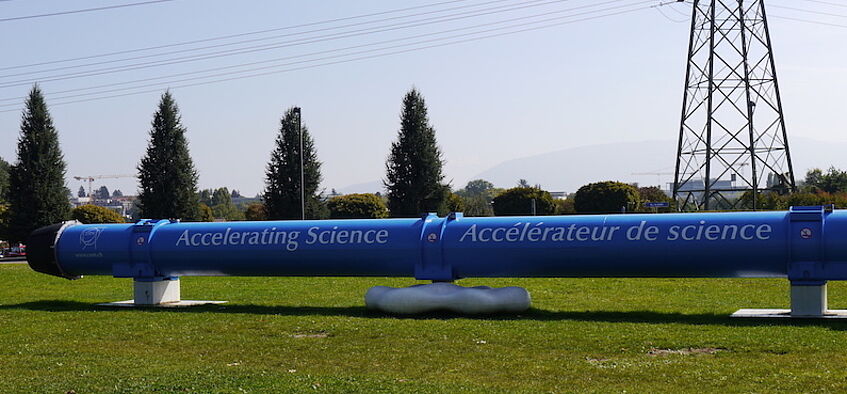Duration 01.01.2019 – 30.06.2023
Making Europe through and for its research infrastructures
Team: Ulrike Felt (PI), Nina Klimburg-Witjes, Kamiel Mobach, Noah Münster, Antonia Winkler, Erik Aarden, Kaye Mathies
Funding: FWF - DACH

Project Description
In the project ‘Making Europe through and for its research infrastructures’ (METAFORIS), a collaboration between the STS department of the University of Vienna and the Munich Center for Technology in Society (MCTS) at TU Munich we comparatively explore how European integration and European science have co-produced each other. We do this by looking at four eminent Transnational European Research Infrastructures (TERIs) in different scientific fields, established at different moments in time. We study the Centre Européen pour la Recherche Nucléaire (CERN; established in 1954), the European Space Agency (ESA; 1975), Laserlab Europe (LLE; 2001), and Biobanking and BioMolecular Research Infrastructure (BBMRI; 2008). We aim to analyze how each infrastructure embodied a distinct vision for European integration, and how, conversely, these research infrastructures were powerful vehicles to advance integration. We will thus explore how changing imaginations of Europe since World War II affected the foundation, the institutional forms and societal positioning of TERIs.
Mobilizing theoretical approaches from Science and Technology Studies (STS), we conceptualize TERIs as sociotechnical machineries of integration that manage to promote broader processes of European integration through relating diverse scientific and socio-political elements to each other. We consider TERIs as being shaped by shifting European political visions and practices of integration while, at the same time, they are relevant actors in the making and stabilizing of Europe.
We trace how TERIs operate through a comparative multi-method approach. The challenge of researching the processes of mutual shaping of TERIs and European socio-political integration lie in the fact that such processes are hardly visible in the everyday life of TERIs. However, this project will get access to the entanglements of the scientific and the socio-political by focusing on key moments in the life of a TERI, i.e. its foundation, as well as major moments of transformation and commemoration. We identify and explore these moments through extensive fieldwork at each of the TERIs. We thereby aim to understand how TERIs are not only the result of a changing European society, but also promote specific ideas about Europe at large. By studying the dynamics of European scientific integration, the project potentially also holds lessons for making sense of the complex challenges European political integration confronts today.
The project is jointly funded by the Austrian FWF and German DFG and runs from January 2019 until June 2022. The research team in Vienna will elaborate the cases of CERN, BBMRI-ERIC and part of the ESA case, and collaborate with colleagues in Munich on the cross-cutting comparison. In Vienna, the project involves Ulrike Felt (PI), Nina Witjes (postdoc), Erik Aarden (postdoc), and Kamiel Mobach (praedoc). The team in Munich consists of Sebastian Pfotenhauer, Zinaida Vasilyeva (postdoc), and Oguz Özkan (praedoc).
Cooperating Partners:
- Munich Center for Technology in Society (MCTS) of TU Munich: Sebastian Pfotenhauer, Zinaida Vasilyeva, and Oguz Özkan
